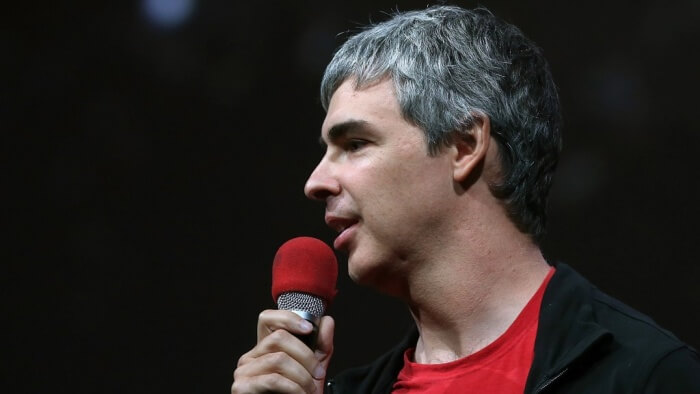The modern economy is full of snakes and ladders. But by keeping your options open, growing businesses can plot a course for success without falling foul of unseen risks.
Options Thinking In Today’s Morphing Economy
The modern economy is full of snakes and ladders. But by keeping your options open, growing businesses can plot a course for success without falling foul of unseen risks.

Today’s business environment is not your grandfather’s economy. It’s not even recognizable as your dad’s business world. It’s a whole new game with brand new rules and, if you wish to succeed, it’s time to take on the project of adaptation.
In the old days – just a few years ago – a business plan was a fairly static thing that outlined a fairly predictable future and proposed fairly ordinary tools and techniques for use in achieving the company’s goals. Since the advent of the internet and the speed at which global business takes place today, there is no time for re-action.
Today’s economy is a proactive one that requires far more forethought than more traditional models. Why? Because the changes in today’s world come at lightning speed and woe unto those who are not prepared to move quickly and confidently. They will surely be trampled underfoot.
"This elastic business environment leaves businesses facing more peril than we’ve faced ever before"
Long before you reach the decision-making moment, if you’re not prepared with a set of alternative, or ancillary plans, your wealth-creation machine may be crushed under the weight of all the other unprepared businesses being spun into space by the centrifugal force of innovation. ‘Options thinking’ is a good way of planning ahead and adapting techniques to meet the new needs of this changing financial climate.
In financial markets, investors have the advantage of put and call options in anticipation of the value of an asset at any given point down the road. These options give the investor the right to choose how he will deal with his shares when the time is right.
In order to do this well, investors must carefully weigh future possibilities and be able to appreciate the likelihoods that are apt to present themselves, as time passes. The greatest value of this kind of thinking is that it forces us to recognize that a range of possibilities exists that not every business may be prepared to meet.
There are no crystal balls involved. This surprisingly elastic business environment leaves businesses facing perhaps more peril than we’ve faced ever before. Nevertheless, the intrepid investor simply looks into the future as best he can based upon where the game ball is today, and he hedges his bets in the way of all good business gamblers.
Knowing that the road may take an abrupt turn or present us with an unexpected junction, options thinking warns us to prepare for whatever surprises lie ahead.
Preemptive thinking such as this can help to reveal real risks and heretofore undiscovered and unidentified opportunities within any given project. When options thinking is done well, it can present us with the kind of legendary success we see in Google.
Google started simply enough. The company was in a single business: search. By investing significantly in its own search engine platform and pairing it with an innovative advertising model, Google generated a very healthy cash flow.

Google's Larry Page has kept the business out in front by anticipating and investing in emerging technologies.
As the company continued to invest in the scope of their search platform, it also began to identify new strategic options. The company developed a new, overarching strategy that concentrated on the range of possibilities. Soon, the name was everywhere. There was Google News, Google Apps, and Google Maps.
Google – in fairly short order - decided to exercise some of its options and move toward new capabilities through continuing investment. In the case of Maps, such development, not surprisingly, meant the acquisition of a number of startups including: ZipDash, Where2, Keyhole, Endoxon, ImageAmerica, and Quiksee.
Google also invested in developing and buying subject matter expertise; investing in platform development, new hires, and development around Maps and new marketing strategies. The Google Maps business platform allowed Google to enter local business markets to compete with the likes of Groupon.
Google Maps also added an entirely new business environment, which led to more users, new markets, new ad revenues, and new licensing revenues by deploying Google Maps on other platforms like Apple iPhone and RIM (Research in Motion, a Canadian telecommunications company,) and products such as your own automobile. The end result, of course, was the expansion of Google’s strategic options portfolio and yet another layer of success.
Google’s fruitful model is repeated over and over again all around us. We see it in companies like Amazon, of course, whose strategic options portfolio is multifaceted and dynamic, factors clearly reflected in Amazon’s share price. The list is long and populated by prosperous options thinkers around the globe.
On the other hand, the financial markets will show no mercy to companies with underdeveloped strategic options portfolio, those that do not reflect strategic options in their acquisitions, or those reluctant to stray even a bit from their core competencies. The market now rewards risk takers like Google and Amazon.
The rapidly changing, elastic economy creates a place where companies need to shift their processes to create flexibility and durability. They need to couple their ability to make internal structural changes with an ability and a willingness to address markets in new ways. That process can mean sacrificing immediate profitability for longevity, the opportunity to serve shareholders over a longer period of time.
Thanks for signing up to Minutehack alerts.
Brilliant editorials heading your way soon.
Okay, Thanks!


